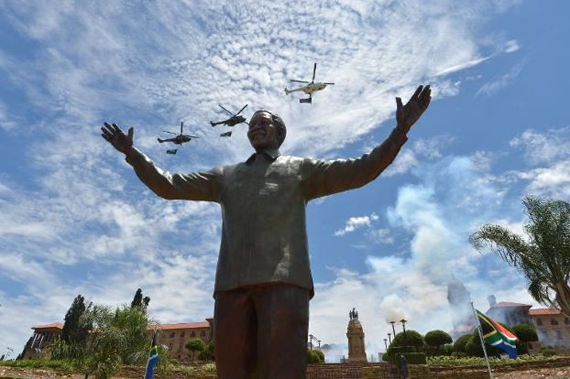 Johannesburg, Jan 22: The South African government has ordered the removal of a rabbit that was secretly sculpted into a recently unveiled statue of Nelson Mandela, an official said today.
Johannesburg, Jan 22: The South African government has ordered the removal of a rabbit that was secretly sculpted into a recently unveiled statue of Nelson Mandela, an official said today.
The artists who built the nine metre (30-foot), bronze colossus in Pretoria, added a rabbit into the ear of the statue, without clearance from government.
"We want to restore the integrity of the sculpture as soon as possible," Mogomotsi Mogodiri, spokesman for the ministry of arts and culture said.
The government said it was unaware of the rabbit's existence until a local newspaper brought it to their attention.
The two bronze sculptors -- Andre Prinsloo and Ruhan Janse van Vuuren -- who added the mammal as their 'signature' of the work, have apologised for doing so without permission.
"We accepted their apology," Mogodiri said, adding it was unclear how long it would take to extract the rabbit from the statue's ear.
The boss of the company that was contracted by government to erect the statue, which in turn hired the two artists, said the artists' action was "regrettable" and akin to a "senseless prank".
Dali Tambo, chairman of Koketso Growth said it had from the beginning been decided against engraving the statue.
But the names of the artists were going to be installed at a plaque near the statue.
"It is regrettable that the artists chose this way of expressing their opinion about not signing the sculpture," said Tambo, who is also the son of one of the leading anti-apartheid politicians, Oliver Tambo.
Built at a cost of eight million rand (about $740,000), the 4.5-tonne sculpture is the largest of Mandela statues erected around the world.
It was unveiled just a day after Mandela was buried.
Mandela, who became South Africa's first black president after 27 years in apartheid prisons, died on December 5, 2013 at the age of 95.






Comments
Add new comment